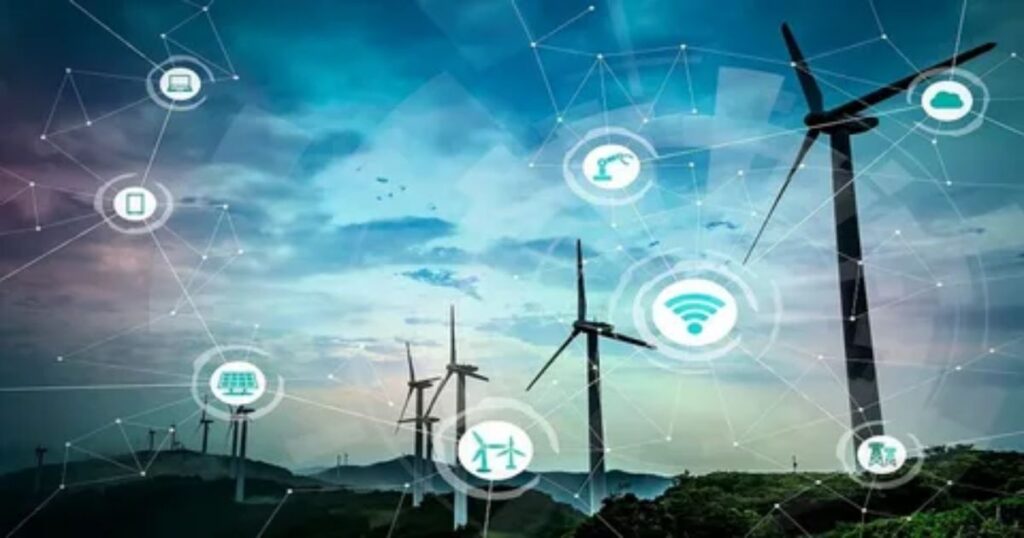The energy industry is vast and essential, powering homes, businesses, and industries. It includes sectors like oil, gas, renewable energy, and electricity. Energy insurance is crucial in this industry, offering coverage for various risks that energy companies face. These risks can range from equipment failures to natural disasters. The question often arises can energy insurance cover natural disasters.
It’s essential to understand that energy insurance is not a one-size-fits-all solution. The coverage depends on the specific policy purchased by the energy company. Different policies offer different levels of protection, and natural disasters are often a critical area of concern. Companies in the energy sector need to assess their risks carefully and choose insurance policies that provide adequate coverage for natural disasters.
Understanding Natural Disasters in The Energy Sector
Natural disasters can have a catastrophic impact on the energy sector. Events like hurricanes, earthquakes, floods, and wildfires can cause significant damage to infrastructure, leading to prolonged outages and financial losses. The frequency and intensity of these disasters have been increasing, making it more critical for energy companies to have proper insurance coverage.
It is vital to recognize that not all energy insurance policies automatically cover natural disasters. Many standard policies exclude coverage for such events or offer it as an optional add-on. This exclusion is because natural disasters are unpredictable and can result in enormous claims. Therefore, energy companies must carefully review their insurance policies to understand what is covered.
The Role Of Business Interruption Insurance
Business interruption insurance is a key component of energy insurance that can help companies during natural disasters. This type of insurance covers the loss of income that a business suffers after a disaster. For energy companies, business interruption insurance can be crucial in maintaining financial stability when operations are halted due to a natural disaster.
It is important to note that business interruption insurance often requires the underlying cause of the interruption to be covered by the policy. For instance, if a natural disaster damages an oil rig, the business interruption insurance will only kick in if the natural disaster is covered under the main policy. Energy companies should ensure that their business interruption insurance aligns with their overall risk management strategy.
The Importance Of Tailored Energy Insurance Policies
Every energy company has unique risks and challenges. Therefore, a tailored energy insurance policy is essential. Off-the-shelf insurance policies may not adequately cover the specific risks faced by an energy company, particularly when it comes to natural disasters. A customized policy ensures that the company has the right coverage in place.
It is also crucial for energy companies to work closely with their insurance providers to identify potential gaps in coverage. These gaps can include inadequate coverage for natural disasters or insufficient limits on certain types of claims. Regularly reviewing and updating the insurance policy can help ensure that it continues to meet the company’s needs, especially as the threat of natural disasters evolves.
Types Of Natural Disasters Covered By Energy Insurance

Natural disasters come in many forms, and the type of coverage provided by energy insurance can vary. Some common natural disasters that energy insurance may cover include:
- Hurricanes: These powerful storms can cause extensive damage to offshore platforms, refineries, and power lines.
- Earthquakes: Seismic activity can disrupt operations at power plants and cause damage to pipelines.
- Floods: Heavy rainfall and rising water levels can flood facilities and damage equipment.
- Wildfires: These fires can destroy large areas of land, including energy infrastructure like transmission lines.
The specific natural disasters covered by an energy insurance policy will depend on the terms of the policy. Energy companies must work with their insurers to ensure that all relevant risks are covered.
The Cost Of Energy Insurance For Natural Disasters
The cost of energy insurance that includes coverage for natural disasters can be significant. Insurance providers consider several factors when determining the premium, including the company’s location, the value of its assets, and the likelihood of natural disasters occurring in that area. For example, a company operating in a hurricane-prone region may face higher premiums than one in a more stable environment.
It is important for energy companies to balance the cost of insurance with the level of coverage they need. While it may be tempting to opt for lower premiums, this could result in inadequate coverage when a natural disaster occurs. Companies should consider their financial risk tolerance and the potential impact of a natural disaster on their operations when selecting their insurance coverage.
The Benefits Of Comprehensive Energy Insurance
Comprehensive energy insurance provides energy companies with peace of mind. It ensures that they are protected against a wide range of risks, including natural disasters. This protection allows companies to focus on their core operations without constantly worrying about the financial impact of a disaster.
Comprehensive coverage can also help companies recover more quickly after a natural disaster. By providing funds to repair damaged infrastructure and cover lost income, energy insurance helps companies get back on their feet faster. This speedy recovery is crucial in the energy sector, where prolonged downtime can have far-reaching consequences.
Common Exclusions in Energy Insurance Policies
While energy insurance can offer broad coverage, it is essential to be aware of common exclusions. These exclusions can significantly impact the protection provided by the policy. Some of the most common exclusions related to natural disasters include:
- Acts of war: Damage caused by war or terrorism is often excluded.
- Wear and tear: Damage resulting from normal wear and tear or poor maintenance may not be covered.
- Certain natural disasters: Some policies may exclude specific natural disasters, such as earthquakes or floods, unless additional coverage is purchased.
Energy companies should carefully review their insurance policies to understand these exclusions and consider purchasing additional coverage if needed.
The Future Of Energy Insurance And Natural Disasters

It is expected that energy insurance policies will become more comprehensive with greater emphasis on covering natural disasters. However, this expanded coverage may come at a higher cost, making it even more important for energy companies to work closely with their insurers to find the right balance between cost and coverage.
How To Choose The Right Energy Insurance Policy
Choosing the right energy insurance policy requires careful consideration. Energy companies should take the following steps to ensure they select the best policy for their needs.
- Assess Risks: Conduct a thorough risk assessment to identify potential natural disasters and other risks.
- Work with Experts: Engage with insurance brokers and consultants who specialize in energy insurance.
- Compare Policies: Review multiple policies to compare coverage, exclusions, and costs.
- Review Regularly: Regularly review and update the policy to ensure it continues to meet the company’s needs.
These steps can help energy companies secure the right insurance coverage to protect their assets and operations.
Frequently Asked Questions
Can energy insurance cover all types of natural disasters?
Energy insurance can cover many types of natural disasters, but the specific coverage depends on the policy. Common disasters like hurricanes, earthquakes, and floods are often covered, but companies may need to purchase additional coverage for certain events.
How can I ensure my energy insurance covers natural disasters?
To ensure coverage for natural disasters, work closely with your insurance provider to review your policy. Consider purchasing add-ons or endorsements that specifically cover natural disasters relevant to your location and operations.
What factors affect the cost of energy insurance for natural disasters?
Several factors influence the cost, including the company’s location, the value of its assets, and the likelihood of natural disasters in the area. Companies in high-risk regions may face higher premiums.
Is business interruption insurance included in energy insurance policies?
Business interruption insurance is often an optional add-on to energy insurance policies. It covers the loss of income when operations are disrupted by a covered event, such as a natural disaster.
Conclusion
Energy insurance plays a vital role in protecting companies from the financial impact of natural disasters. By understanding the types of coverage available, the potential exclusions, and the importance of tailored policies, energy companies can make informed decisions about their insurance needs. As natural disasters become more frequent and severe, having the right insurance coverage is more critical than ever. Energy companies must work closely with their insurers to ensure they are fully protected against the risks they face.
